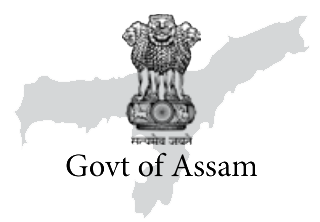The month of July brought us double delights. The first one was a Niti Aayog report that said that Assam has pulled 47 lakh people out of multidimensional poverty in five years between 2015-2016 and 2019-2021. The figure in the country was 13.5 crore people. Assam’s rate was 4% above the national average. Our multidimensional poverty rate was 32.65% in 2015-2016 while it stood at 19.35% in 2020-2021. No doubt, this is not the best rate of reduction in the country but it goes without saying that our policies are working at the ground. I can assure you that it will be much faster in the coming years since most policy actions have started taking shape. In general terms, what this report says is that health, education and standard of living across Assam have got a shot in the arm in the last few years, thanks to the policies of the Central Government, and the role our Government has played in implementing these at the ground. The report on why India has done so well in reducing multidimensional poverty is a tribute to what the Central Government under our Prime Minister has been able to achieve. From housing to education and the tremendous leap in medical facilities, there have measures that have helped us to reach where we are today. Mind my words, this is just the beginning. By the time the next report is published, Assam, and India will have come a long way in their fight against poverty and ensuring dignity to the poor.
Another piece of news which has a direct bearing on the above is our GST success story. No less than the Finance Minister of the country was fulsome in her praise of how GST has started to work wonders on our finances. The increasing collection and the Centre’s continuous support in releasing our devolution fund has meant that funds are never an issue in the implementation of poverty-alleviation and welfare measures for the poor and the downtrodden. This has also allowed us the leverage to go for infrastructural push which all economists, cutting across any school of thought, agree is the surest way of getting people out of the poverty trap. Our tax collection prior to GST was just over ₹ 558 cr, but in just six years since its implementation, our net collection has reached a figure of nearly ₹ 7,100 crore. Assam being a major consuming State, it is an achievement for which I must compliment those who are being honest to the nation, as well as the State machinery which is working wholeheartedly towards it. Let us not forget that we were the first State to ratify GST.
In July, three lakh beneficiaries under the Pradhan Mantri Awas Yojana(Grameen) formally entered their pucca houses thereby marking a major stride forward in achieving Prime Minister Narendra Modi’s goal of “Housing for All by 2024”. I know that many of these beneficiaries never ever dreamt of having concrete protection over their head, not to mention having a house of their own. This is why a Government that cares and thinks of the poorest and the marginal is so important.
Come September 17, Assam will successfully attempt a shot at the Guinness record of planting 1 crore commercial tree saplings in a single day, rather a specific time of two hours. The idea is not chasing records, but to push for a greener and cleaner environment for our progeny. By doing so, what we intend to do is to drive home the importance of the commercial variety of trees in achieving a sustainable economy that lasts beyond our lifetime. The Amrit Brikshya Andolan will have children and women as our informal ambassadors. Not only are we incentivizing the plantation, but we are also encouraging a form of vigilance in their upkeep by earmarking ₹ 200 per plant if they cross the first three years of their existence. The benefit of such a step is too well known for us to elaborate.
In a major outreach to the rural areas, we have decided to encourage Ministers, MLAs, and 5,000 of our best employees to go and stay in rural areas among the villagers and in their settings to have a true picture of what Assam needs. A State whose heart lies in its villages cannot be governed in the best way from the concrete comfort of its urban locales. This initiative will certainly provide us with important inputs in framing policies in the interest of the greater majority. In my public service life, I have realised that policies are mostly framed based on a theoretical understanding of the scenario. Unless one experiences the pain and plight of the masses, how can we call ourselves a pro-people Government? In no civilization can a Government be only for the powerful and influential, while silently neglecting the majority.













